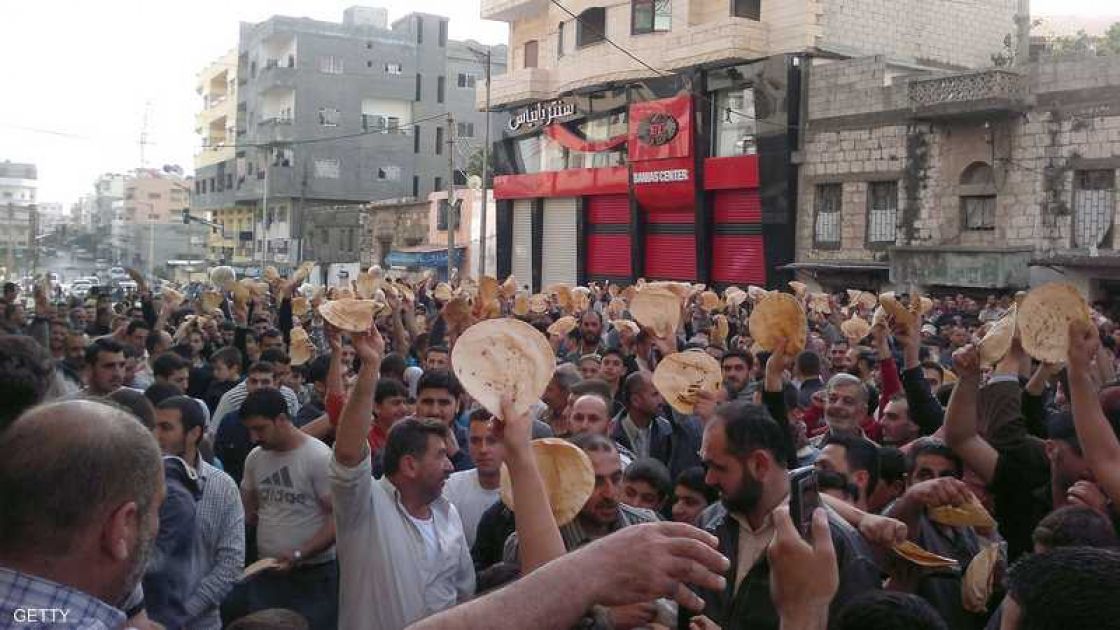- Editorials
- Posted
Kassioun Editorial 1046: What is Behind Lifting Subsidization?
Since the outset, subsidization policies were an expression of wages not being sufficient for those who receive them to reach the minimum standard of living. Therefore, it was necessary to subsidize them, whether by fixing the prices of some basic commodities such as fuel, electricity, and bread, for example, or by other means.
In other words, the existence of the subsidization policy itself was an expression of two major distortions in the Syrian economy: the first is the distortion of the relationship between wages and profits, and of course in the interest of profits; and the second is the distortion of the relationship between wages and the minimum standard of living. In this sense, the continuation of subsidies over the last few decades was an expression of the continuation and deepening of these two distortions.
If keeping subsidization in place or lifting it is not a goal in itself, then the balance between wages and the average standard of living is. That is, every subsidy that is lifted must be compensated with a real increase in wages, otherwise lifting the subsidy without compensating for what is lifted is nothing other than officially-sponsored additional plundering from the pockets of the wage earners to the pockets of the profiteers.
The process of lifting subsidies takes various forms, as the bitter experience of Syrians proves. Raising the prices of basic commodities such as bread, fuel, electricity, and others is not the only way to lift subsidization. There are also more “savvy” forms that are followed in the process of lifting subsidization, including the reduction of food allowances leading to cancellation thereof, as well as reducing the allocations for diesel and household gas, etc., and the difficulty of obtaining them, as well as rationing electricity where people get it very infrequently. At the same time, official statements declare that “any citizen” who can pay 300 Syrian pounds per kilowatt hour, can have power all day long, every day.
If the process of lifting subsidies began gradually with the launch of the so-called “social market economy” in 2005, directly led to more distortion in the relationship between wages and profits, and got translated into an increase in the poverty rate over 5 years from 30% to 44% of Syrians, then what is happening in the process of lifting the subsidies these days aims to go beyond merely maximizing plundering.
Any state apparatus has, in principle, two main functions: repression and regulation. Repression means the use of or insinuation of using force to maintain a specific pattern of wealth distribution; and regulation with all that it includes of the various social functions of the state apparatus.
The ongoing process of lifting subsidies aims to end any social role of the state apparatus, and thus turn it into a bare tool of oppression in the hands of the plunderers. This not only threatens the socioeconomic political system, but also threatens the very existence of the state apparatus, and the very existence of the state itself.
On the other hand, the ongoing process of lifting subsidies, and as it targets the state itself, is targeting it by pressing to the maximum limits on the “segments” that the Chairman of the Economic Committee promises us will be excluded from the subsidy. A violent and unprecedented pressure, through which an attempt is being made to incorporate these “segments” in a process of historical transformation and displacement, including from concepts and trends that have persevered and persisted despite all the misfortunes that have befallen the masses.
Defending the “excluded segments” and those that will be excluded, i.e., defending 90% of Syrians in the face of those who pressure them to the point of suffocation, requires a review of the country’s entire socioeconomic structure, which is a review of the entire political structure as well. The only path for this and that is a comprehensive political solution based on UNSC Resolution 2254, the delay of which is exactly what has led to this rapid and massive deterioration.


